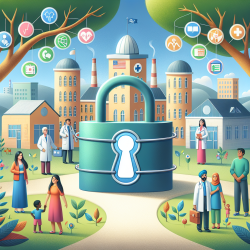Understanding the Ethical Implications of the Texas Heartbeat Law
The Texas Heartbeat Law, in effect since September 2021, has sparked significant debate due to its restriction on abortions once a fetal heartbeat is detected, typically around six weeks of gestation. This law has profound implications for women, healthcare professionals, and society at large. For practitioners, especially those in fields like speech-language pathology, understanding these implications is crucial for making informed, ethical decisions in their practice.
Key Ethical Concerns
The research article "The Unethical Texas Heartbeat Law" provides a comprehensive overview of the ethical concerns surrounding this legislation. It highlights several key issues:
- Access to Healthcare: The law significantly limits women's access to abortion services, posing ethical dilemmas for healthcare providers who must navigate between legal restrictions and patient care.
- Autonomy and Rights: The law challenges women's autonomy over their reproductive health, raising questions about the ethical obligations of practitioners to support patient rights.
- Societal Impact: The broader societal implications include increased strain on healthcare systems in neighboring states and potential increases in unsafe abortion practices.
Implications for Practitioners
For speech-language pathologists and other healthcare practitioners, understanding the ethical landscape shaped by such laws is essential. This understanding can inform their interactions with clients and guide them in advocating for ethical practices within their professional community.
Encouraging Further Research
Practitioners are encouraged to delve deeper into the ethical implications of such laws and how they intersect with their field. Engaging in further research can enhance their ability to make data-driven decisions that prioritize patient welfare and uphold ethical standards.
Some areas for further exploration include:
- Investigating how legal restrictions impact patient-provider communication and trust.
- Exploring the role of practitioners in advocating for patient rights and ethical healthcare policies.
- Examining the long-term effects of restricted access to reproductive healthcare on speech and language development in children.
Conclusion
By understanding the ethical implications of the Texas Heartbeat Law, practitioners can enhance their professional skills and contribute to a more informed and ethical healthcare environment. Engaging in further research and dialogue is essential for navigating these complex issues effectively.
To read the original research paper, please follow this link: The Unethical Texas Heartbeat Law.










